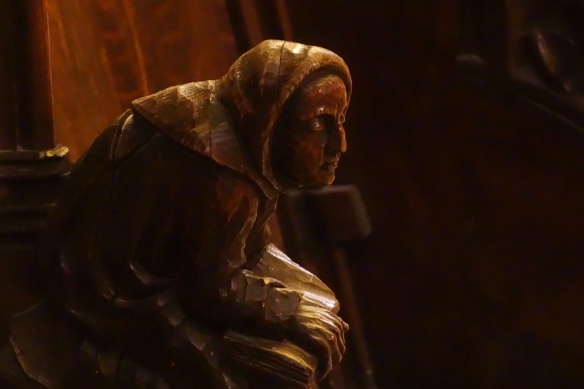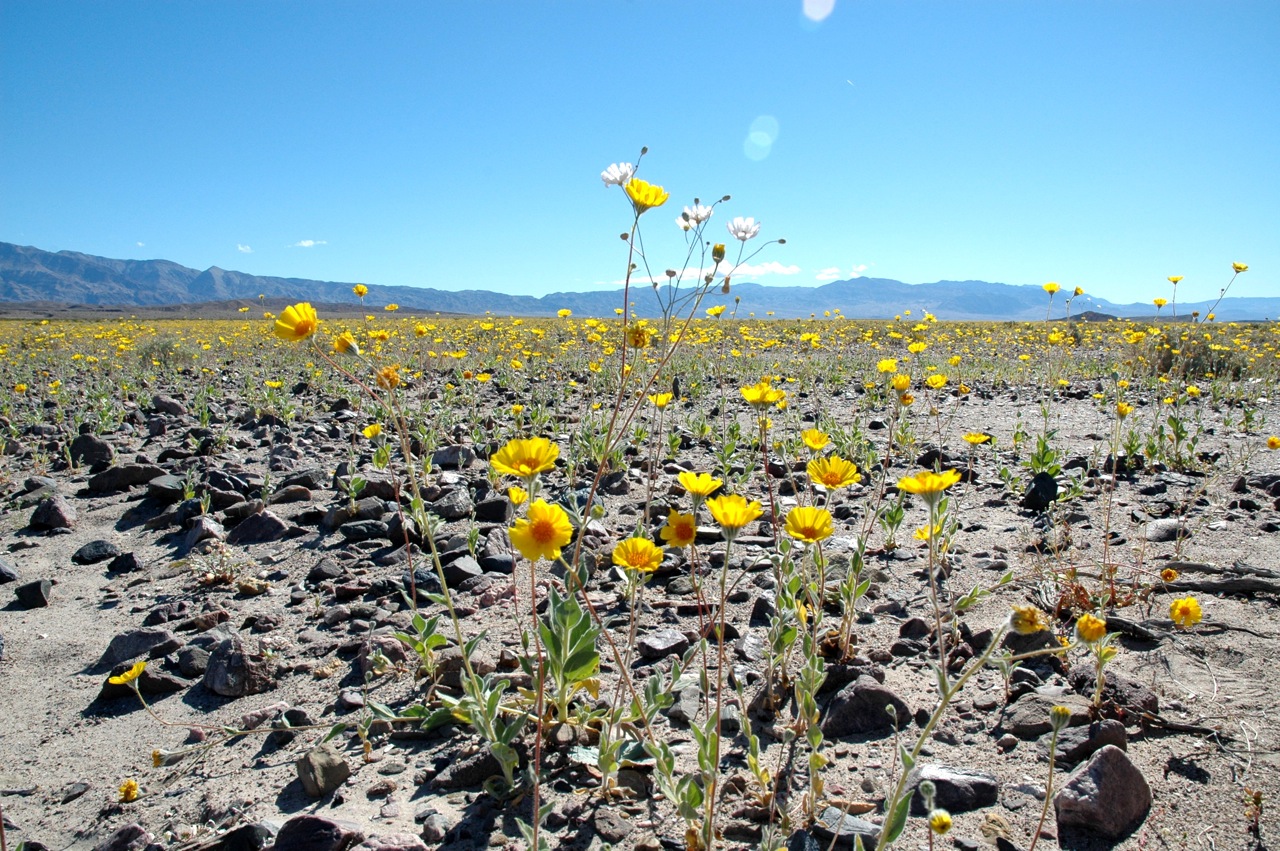
For your hand was heavy upon me day and night;
my moisture was dried up as in the heat of summer.
— Psalm 32:4 [i]
Ash Wednesday is a border crossing. Our foreheads, like passports, are stamped with ashes, and we step bravely into the forbidding wastes of Lent’s strange land. By the time we reach the other side, we will be someone else.
The Lenten journey is commonly viewed as a time of personal growth and transformation, a solitary immersion in the refiner’s fire, a testing and cleansing of our innermost heart. We learn to travel light, shed the inessentials. We face our demons. We renounce regrets and angers, and interrogate our desire. We listen patiently, till the Silence speaks. The desert saints, who fled the corruptions and distractions of the Roman Empire to meet God on open ground, modeled the classic regimen:
“[G]et up early every day and acquire the beginning of every virtue and commandment of God. Use great patience, with fear and long-suffering, in the love of God, with all the fervor of your soul and body. Exercise great humility, bear with interior distress, be vigilant and pray often with reverence and groaning, with purity of speech and control of your eyes… Do your work in peace. Persevere in keeping vigil, in hunger and thirst, cold and nakedness, and in sufferings.”[ii]
This year, however, Lent’s collective dimension comes to the fore. The pandemic has made our social behavior a literal choice between life and death. Thoughtless selfishness about masks and social distancing, however trivial it may seem in the moment, may have murderous results. Necessity has forced us all to live, as Thoreau advised, “deliberately.” At the same time, climate change, racism, economic dysfunction and political crisis continue to issue their own relentless summons to collective conversion.
Return to me with all your heart, says the Lord, with fasting, with weeping, and with mourning; rend your hearts, not your garments.… Blow the trumpet in Zion, sanctify a fast; call a solemn assembly; gather the people.…Between the vestibule and the altar let the priests, the ministers of the Lord, weep. Let them say, “Spare your people, O Lord, and do not make your heritage a mockery, a byword among the nations.” [iii]
These words of the prophet Joel, recited aloud in the Ash Wednesday liturgy, seem so well-aimed this year. Although the United States is not the biblical chosen people, Joel’s words do hit home. Our toxic national quagmire should put us all in sackcloth and ashes, rending our hearts and crying “Mercy!” for 40 days of public atonement.
It’s not enough to blame Trump, Hawley, Cruz, McConnell and rest of that sorry mob of schemers and traitors. However despicable their betrayals of democracy, however pathetic their black hearts and shrunken souls, those individuals are but the rotten fruit of our unaddressed national sins, what Martin Luther King called “the giant triplets of racism, extreme materialism and militarism.” [iv] The common response to the violent insurrection unleashed at the U.S. Capitol on January 6 has been a claim of innocence: “This is not who we are.“ And yet, in the words of one candid observer, “It is what we do.” [v]
Writing about coming of age during the Vietnam War, Patricia Hampl describes her attempt to identify with the American ideal rather than its present reality. Walt Whitman was her guide. “Out of the ashes of the Civil War … Whitman fashioned his thrilling American conception, … envisioning a country full of charmed lovers with arms around each others’ waists.” Distressed by napalm abroad and civil strife at home, Hampl wanted to cling to America’s best idea of itself.
“I could escape American history which was a bad dream and enter the dream of America which I wished could be history. A sleight of hand, a last-ditch attempt to return to the purity of abstraction, to the Mayflower moment, the radiant arrival in paradise before anything had happened. Ourselves—but rinsed of history.” [vi]
No such luck. We the people can only be rinsed on the far side of the Lenten desert. For now, nothing but ashes, sand, and dust, as we endure our dryness with broken and contrite hearts, engage our demons without evasion or fear, renounce our innocence, and surrender to grace.

Related posts:
Ash Wednesday: A Time for Self-Compassion
Is Holiness a Lenten Obligation?
[i] Daily Office Psalm for Ash Wednesday, Episcopal Book of Common Prayer.
[ii] The Apophthegmata (Sayings of the Desert Fathers), in William Harmless, S.J., Desert Christians: An Introduction to the Literature of Early Monasticism (Oxford and New York: Oxford University Press, 2004), 199-200.
[iii] Joel 2:12-13, 15-17. This passage is one of two choices of Ash Wednesday texts from the Hebrew prophets. The other, Isaiah 58:1-12, is also a cry for collective repentance, adding a list of corporate sins well-known in our own day: injustice, oppression, neglect of the poor, hungry and homeless.
[iv] Martin Luther King, Jr., from a famous sermon at New York’s Riverside Church on April 4, 1967. The text (with audio) is here: https://www.americanrhetoric.com/speeches/mlkatimetobreaksilence.htm A superb article by Andrew Bacevich in June 2020 shows the continuing relevance of King’s sermon today: https://billmoyers.com/story/martin-luther-kings-giant-triplets-racism-yes-but-what-about-militarism-and-materialism/
[v] Mark Danner, “’Be Ready to Fight,’” New York Review of Books (Feb. 11, 2021), 4-8.
[vi] Patricia Hampl, I Could Tell You Stories: Sojourns in the Land of Memory (New York: W.W. Norton & Company, 1999), 49. Hampl is one of my favorite writers and storytellers.













